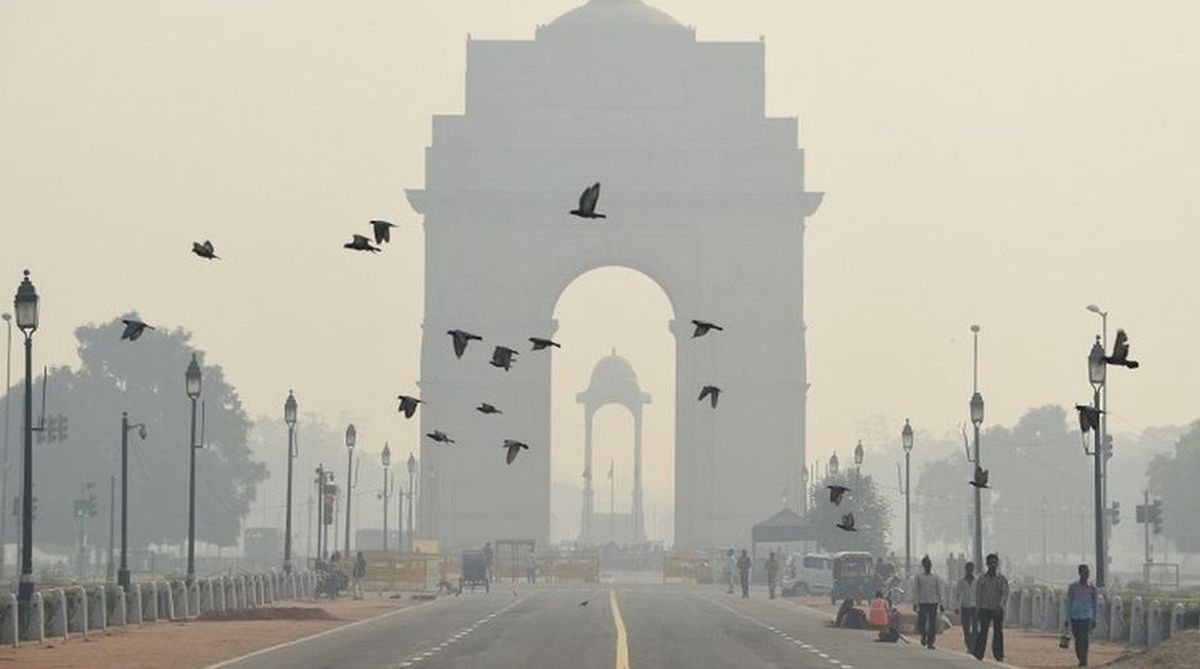India’s massive pollution problem was today discussed in the Rajya Sabha for two and a half hours on a resolution moved by Congress Party member Amee Yajnik, which urged the Government to set up a Joint Parliamentary Committee (JPC) for a comprehensive report on air, water and land pollution.
Speaking on her private member resolution, Yajnik said reports showed that India has the world’s worst air pollution, and toxic air killed more than one million people every year.
Advertisement
She said the smoggy air cloaking India’s 22 most populated cities contains dangerously high levels of fine particulate matter, known as PM 2.5, which are linked to lung and heart diseases and are known to impair cognitive functions and the immune system.
Air pollution contributed to global warming, as a major component of PM 2.5 is black carbon, which can absorb one million times more energy from the sun than carbon dioxide, she said.
Last year, New Delhi recorded the highest concentration of PM 2.5 particles to date, at 14 times the safe limit outlined by the World Health Organization (WHO). Around 80 per cent of India’s water is severely polluted due to sewage, silt and garbage being thrown into the country’s rivers and lakes, she said.
Water pollution in India affects people’s lives, especially children who are particularly vulnerable to waterborne infections. The high state of soil erosion, excessive use of chemical fertilizers, biocides (pesticides, insecticides and herbicides), polluted the liquids and solids from urban and industrial areas.
Suggesting a JPC to study the problem, Yajnik said it could prepare a plan of action to control the overall environmental pollution and suggest steps to improve environmental protection by adopting technological advancements.
Yajnik said the JPC could also suggest stringent provisions in the law to ensure the safety of air, water and land to mitigate the problem while suggesting policies to discourage the use of chemical pesticides.
Participating in the discussion, BJP members agreed with the severity of the problem but said there was no need for the JPC as the Government had taken several steps to control pollution.
Shiv Pratap Shukla (BJP) said India had signed the recent Glasgow agreement and proposed a five-point action plan. Amar Patnaik (BJD) said the right to health is also a basic human right. There was a need to adopt a spirit of cooperation rather than competition. The strategy of reducing, re-use and recycling should be followed to prevent climate change.
V Vijayasai Reddy (YSRCP) said industrial growth should be sustainable and all construction regulated. Manoj Jha (RJD) said air pollution caused a loss of three per cent of GDP while just one per cent of GDP was spent on health.
Sanjay Singh (AAP) said Delhi’s Vidhan Sabha was the only Assembly in the country to run fully on climate-friendly solar energy. The Government saved Rs 10 lakh annually from this. Delhi deserved to be given Central funds for pollution control, he said.
Fauzia Khan (NCP) supported Yajnik’s resolution and said none can deny a link between air pollution and health conditions. Mahesh Poddar (BJP) said JPC would not solve any problem.











